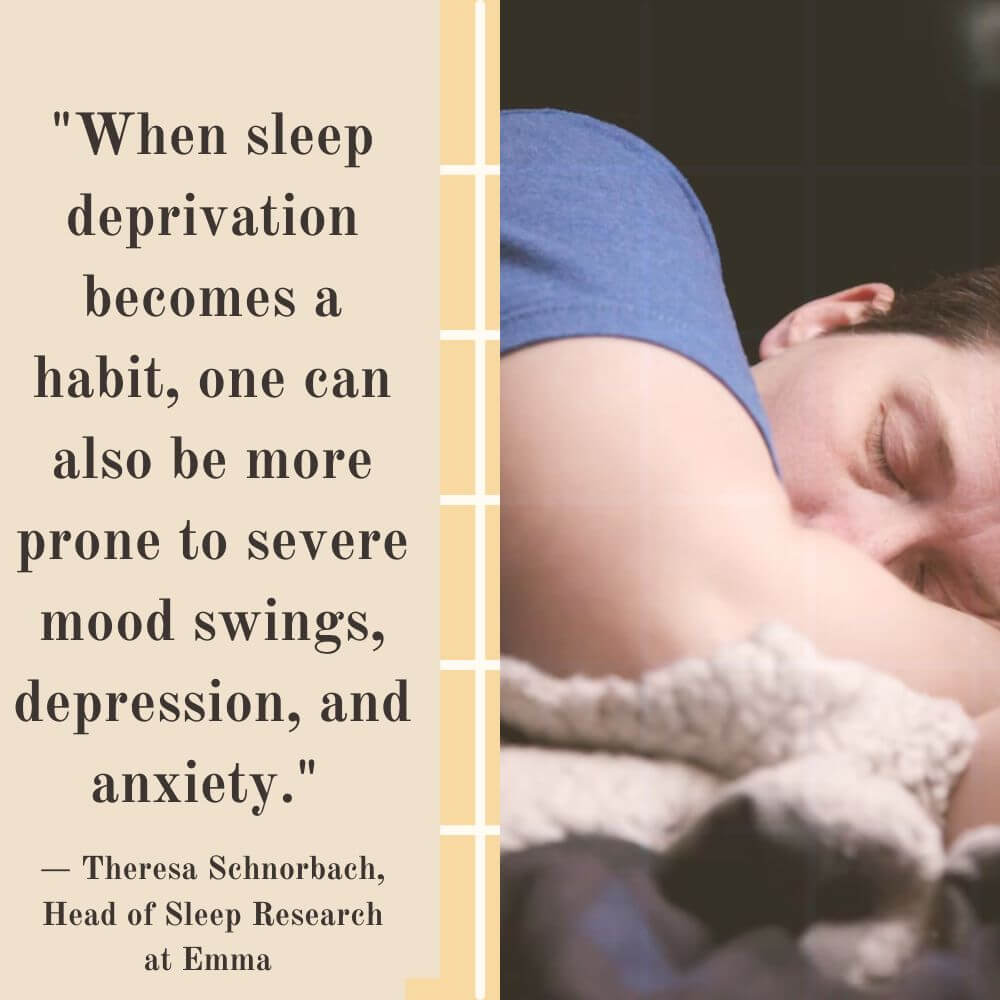Do you find yourself having a difficult time getting a good night’s rest? You’re not the only one. Many people complain about a lack of sleep affecting how they operate daily.
According to Theresa Schnorbach, Head of Sleep Research at Emma’s, our physical and mental well-being depends on the quality of sleep we get at night. However, there’s no one-size-fits-all to how much sleep is necessary since age, health, and lifestyle can affect the amount of sleep required.
“A good rule of thumb is seven to nine hours daily,” Schnorbach said. “The things sleep can do for your body and health are incredible.”
It’s critical to comprehend the value of quality slumber before diving into how we can get our best sleep yet. Schnorbach said the numerous benefits include restoring and re-energizing the brain and body so that we can learn, problem-solve, and memorize.
This year, we’re prioritizing maintaining a balanced self-care regimen and wellness routine to get the sleep we deserve. Ahead, we spoke to four experts to uncover whether or not we’re sleep deprived, what could be causing our sleep deprivation, and how we can improve our sleeping habits.
Meet the experts
- Dr. Beth Pausic, Director of Behavioral Health at Hims & Hers
- Theresa Schnorbach, Head of Sleep Research at Emma
- Sara Panton, Co-Founder and CEO of Vitruvi
- Ashley Merill, Founder of Lunya
Why you’re not sleeping well
How do you know if you’re sleep deprived? Schnorbach explained that the following could be signs of sleep deprivation:
- Trouble getting up in the morning
- Having difficulty focusing during the day
- Feeling drowsy
- Regularly dozing off during the day
- Drastic weight changes
- Weakened immune system
- Reduced working memory
Some other side effects include unregulated hormones (mood swings), excessive caloric intake due to boosted hunger and appetite, reduced energy expenditure, changes in the body’s use of insulin, impaired cognitive and physical performance, increased sensitivity and irritability, lower sex drive, premature wrinkling, and an increased risk of cardiovascular diseases.
Dr. Beth Pausic explained that many factors can contribute to restless nights. “Most people tend to suffer from poor sleep if they’re stressed and anxious,” she said, highlighting that it can be difficult to not mull over issues of the day.
Other factors contributing to sleep deprivation may include consuming alcohol or caffeine too late in the day, snacking before bed, keeping the room temperature too high, and overstimulation, such as exercising, watching TV, or scrolling on your phone. For others, Pausic cautioned, it may involve medical issues, a sleep disorder, physical pain, or medication side effects.
If you’re unsure what may be impacting your sleep, Pausic suggested journaling for a few days, noting what behaviors could affect your rest, like when you had your last coffee or how late you checked your phone at night. “If you can’t identify any factors, check in with your health care provider to determine if there’s a medical issue,” Pausic advised.
How to get the best sleep

After identifying the behaviors or lifestyle choices contributing to your poor sleep, it’s time to make some changes.
Maintaining a consistent sleep schedule is the first step to improving your sleeping habits. By being consistent with your wake and sleep times, you can train your brain to recognize when it’s time to rest.
Below, our experts share habits to include in your daily sleep routine to improve your sleep quality:
- Relax. At the end of the day, unwind with a warm bath or shower. Treat yourself to lavish bath bombs and scented candles to help you relax and luxuriate.
- Establish a peaceful environment. Dim the lights and consume a calming beverage like chamomile tea before bed. To calm your other senses, consider adding a diffuser with a scent of your choice.
- Keep it cool. Keeping the room temperature on the cooler side can improve your quality of sleep. The suggested temperature is 65 degrees Fahrenheit.
- Keep it dark. We all sleep better in darkness. Consider using blackout curtains (or blackout stickers for your technology) if intrusive light sources hinder your sleep.
- Turn off your devices. Late-night phone use stimulates the brain and elevates stress. If you rely on your phone as an alarm, consider getting an alarm clock that offers white noise, nature sounds, and meditation activations.
- Get cozy. Choose your clothes and bedding wisely. Materials like silk can assist in maintaining a regulated body temperature while you sleep.
- Avoid late-night alcohol or caffeine consumption. Alcohol can disrupt your sleep, and caffeine can prevent you from falling asleep.
- Avoid heavy meals. Stay away from large or heavy meals late in the evening.
- Maintain the right exercise balance. While being physically active can improve your sleep, be cautious not to exercise right before bedtime. Exercise for at least 30 minutes a day, but no later than two to three hours before bed.
Last words
Pausic shared that learning stress management techniques such as meditation or progressive muscle relaxation can help address pre-sleep anxiety. Stepping outside during the day can also help improve sleep quality.
Schnorbach advised slowly easing the above habits into your bedtime routine. “Trying to incorporate all of these at once could lead to unrealistic expectations, disappointment, and discouragement,” she said, reminding us that taking small steps is the key to success.





